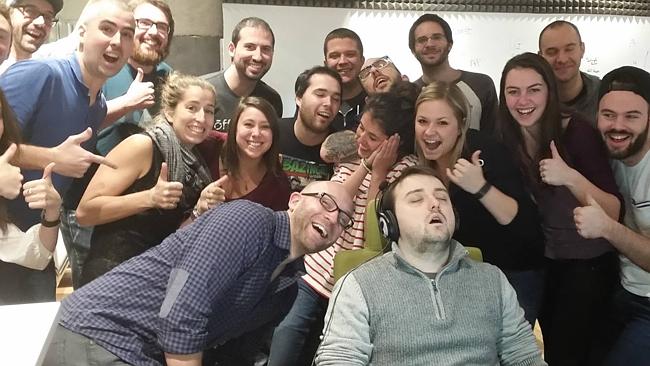The reason why you’re struggling to concentrate
DO YOU find yourself dozing at your desk by midafternoon? There’s a scientific reason why, but it can be reversed with a few tricks.

DO YOU find yourself dozing at your desk by midafternoon? If so, your circadian cycle could be to blame.
Sounds terribly scientific, but it isn’t really. Simply put: it’s your biological cycle that covers a 24-hour period in which your body responds differently to physical and mental challenges at certain times of day.
When you understand the circadian cycle, you can figure out how your brain works in order to focus better and work smarter. There is a pattern in how your brain works at a certain time of day.
Mornings can be great for doing deep work, i.e. work that requires a lot of your concentration. Some scientists call this the brain’s peak performance time, and it’s roughly 2-4 hours after we wake up. So, for example, if you wake up at 6am, your peak times are between 8am and 10am. Block this time off for your analytical brain to perform the most complex tasks that require a lot of focus. Extend the time until noon to get the most out of this part of the day.
Early afternoons are great for collaborating. This covers the 12pm-4pm time range, when you take a lunch break and the few hours after, when you are more likely to socialise.
It’s a good time of day to schedule meetings, brainstorm ideas with others, and work together on projects where you can provide feedback and get recommendations on your work.
BOOST YOUR CONCENTRATION
1. Reconnect with the bigger picture. As you’re studying or working, don’t just focus on what’s in front of you. Ask yourself, “Why am I doing this?”
Make the connection with the initial reasons for working on something to begin with. It can be to learn a new skill, find out more on a particular topic you’re interested in, study to pass an exam so you can graduate and build a career you’re excited about, solve a particular problem you’re currently dealing with, etc.
2. Visualise your progress. This is a technique called building a mental model; you imagine in detail what you expect to see, learn, read, or do.
As you imagine the details, be sure to cover all the steps you will be doing. For example, if you are studying or learning something new, visualise covering a certain amount of material (chapters, paragraphs, sections), taking notes on the important concepts you discover, writing down questions to research later.
The benefit? You train your brain to anticipate next steps and map out the entire learning process in a way that’s easier to understand.
3. Be a master of your time. Don’t just spend hours on a single activity without taking breaks; if you do, you will likely lose focus as well as motivation to continue.
Use a timer to divide up your time into manageable increments that will allow your brain to focus in a more targeted and effective way. Try the Pomodoro technique which consists of 25 minute blocks of time, followed by five minute breaks.
4. Take a power nap. To give your brain a chance to rest and absorb the new material you’ve covered during your work day, opt for a power nap in the afternoon, for about 30 minutes.
Block away environmental noise with noise-cancelling headphones or a pair of soft silicone ear plugs, and listen to music that can help you relax (it can be classical music or sounds of nature).
5. Schedule a workout for later in the day. Exercise is important to boost memory, but timing of it is key.
Scientists have found that people who exercised four hours after their study session retained the information better a few days later than those who exercised either immediately after studying or those who didn’t exercise at all.
Brain scans from the study show that exercising with a delay affects the hippocampus, an area of the brain that is important for learning and memory.
Nela Canovic is a productivity hacker, writer, entrepreneur based in Silicon Valley.
This article first appeared at Quora.com and was reproduced with permission.



